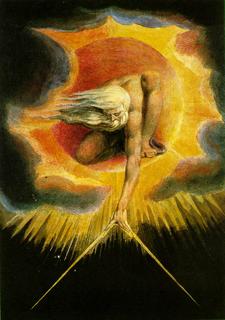
The WaPo reports:
HARRISBURG, Pa., Sept. 27 -- Parents in federal court Tuesday described an atmosphere of intimidation and anger when school board members in Dover, Pa., last year decided to require high school biology teachers to read a statement that casts doubt on the theory of evolution.
Bryan Rehm, a parent who also taught physics at Dover High School, testified of continual pressure from board members not to "teach monkeys-to-man evolution." He said that the board required teachers to watch a film critical of Charles Darwin's theory of evolution and that board members talked openly of teaching creationism alongside evolution.
The atmosphere became so heated that neighbors began to call him an "atheist with . . . a lot of words added on to it," Rehm said. He said that "it was turning into a real zoo" and that students were quarreling about evolution.
Rehm is one of 11 people from Dover, a small town south of Harrisburg, who want to block their school board from requiring the reading of that four-paragraph statement that criticizes evolutionary theory.
HARRISBURG, Pa. – The concept of "intelligent design" is a form of creationism and is not based on scientific method, a professor testified Wednesday in a trial over whether the idea should be taught in public schools.
Robert T. Pennock, a professor of science and philosophy at Michigan State University, testified on behalf of families who sued the Dover Area School District. He said supporters of intelligent design don't offer evidence to support their idea.
"As scientists go about their business, they follow a method," Pennock said. "Intelligent design wants to reject that and so it doesn't really fall within the purview of science."
Pennock said intelligent design does not belong in a science class, but added that it could possibly be addressed in other types of courses.
Read it here.
Here we have a matter of definition. "Science" by definition follows a methodology that excludes any supernatural agency. Therefore "Intelligent Design" which posits such agency cannot be "science." This is incontestable so long as we confine our understandings to the strictures of "science" so defined. But this is essentially a definitional dispute. Evolutionary science, except in the hands of a few hyper-Darwinist zealots, admits a role for contingency or randomness in evolutionary processes and so long as it does it cannot exclude, except through arbitrary definition, the possibility of supernatural agency. Unless one is willing to see evolutionary processes as deterministic and total explanations of everything perceived in the natural world, (and few would be willing to push things that far) the possibility of supernatural agency exists, even if it cannot be admitted as "science."
Again, I don't see the problem with admitting that, while science does not accept the idea of supernatural agency, it does not ultimately exclude it either. Why does the subject of human origins have to be taught in a rigidly exclusionary manner? I know many scientists who have no problem affirming a belief in both scientific principles and divine providence.
I an reminded that in the first day of testimony, a mother objected to a policy that allowed her daughter to leave the classroom during the reading of a statement to the effect that some people disagreed with some points in Darwinian theory. The reason for excusing her was that she might be "confused" by what she heard and the objection to excusing her was that it marked her as holding different beliefs from other students.
Here we are encountering dogmatism and intellectual arrogance -- not education.
Finally, there is this snarky piece from [where else?] San Francisco.
Joan Ryan writes:
With weary regularity, my 15-year-old son flips aside his pencil and, slumping in his chair, asks why a person with no intention of becoming a physicist or mathematician should be tortured with science and algebra. He doesn't yet see the value in learning the principles of logic, or the orderliness of the scientific method to test hypotheses.
I wipe my son's sweaty brow.
"It's so you don't grow up to be an idiot like the school board members in Dover, Pa.,'' I tell him.
Read the whole thing here.
Actually, the son's question is reasonable. There is little utility to be gained from much of what is learned in such classes. They exist simply for the purpose of inculcating right thinking in the public. Acceptance of a strictly scientific view of human origins is, in some circles, considered evidence of right thinking, and any other thought carries a social stigma -- being considered an "idiot" by the right thinkers. Of course, here we are once again venturing into the land of dogmatic struggle. If someone wishes to assert that evolution proceeds without supernatural agency, that's fine with me; and if someone wishes to assert that God in some way guided the process of evolution, that's also fine. In the larger scheme of things it doesn't really matter.
In his Pulitzer Prize winning study of the Scopes trial, Summer For the Gods, [purchase from Amazon by clicking one of the adverisements at the top of the page] Edward Larson notes that in the early Twentieth Century, prominent scientists and theologans [including fundamentalists] were coming to a general agreement regarding human origins, but that the popular press consistently emphasized differences and promoted extreme positions rather than emphasizing broad areas of agreement in order to create a dramatic confrontation. It would seem that today, as it was a century ago, the worst, egged on by the media, are filled with passionate intensity.
No comments:
Post a Comment